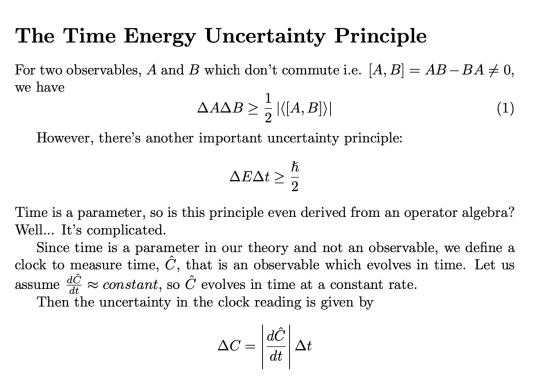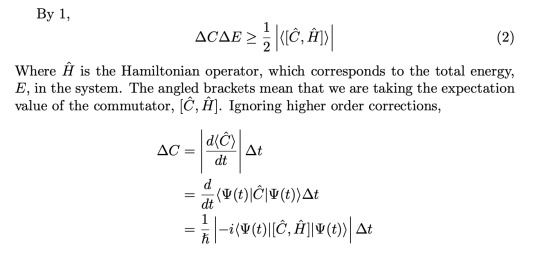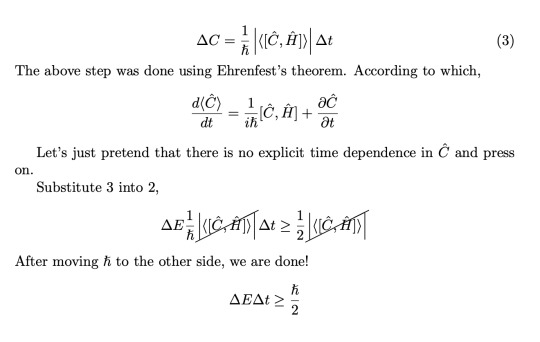#Algebraic Operations
Explore tagged Tumblr posts
Text
📘 Algebraic Operations on Complex Numbers – Class 11 Maths | Complete Guide by 9nid & IITKiTayyari
If you’re a Class 11 student or preparing for IIT-JEE or competitive exams, mastering complex numbers is essential. In this post, we’ll break down algebraic operations on complex numbers — one of the most foundational topics in higher mathematics. This blog is based on our latest YouTube video from the 9nid and IITKiTayyari YouTube channels. You can watch the full lecture for visual…
#9nid#Algebraic Operations#CBSE Class 11#class 11 maths#complex numbers#IIT Foundation#iitkiteyari#JEE Maths#nau_nid
0 notes
Text
📘 Algebraic Operations on Complex Numbers – Class 11 Maths | Complete Guide by 9nid & IITKiTayyari
If you’re a Class 11 student or preparing for IIT-JEE or competitive exams, mastering complex numbers is essential. In this post, we’ll break down algebraic operations on complex numbers — one of the most foundational topics in higher mathematics. This blog is based on our latest YouTube video from the 9nid and IITKiTayyari YouTube channels. You can watch the full lecture for visual…
#9nid#Algebraic Operations#CBSE Class 11#class 11 maths#complex numbers#IIT Foundation#iitkiteyari#JEE Maths#nau_nid
0 notes
Text
Time-Energy Uncertainty Principle



This derivation is lovingly taken from my intermediate quantum mechanics prof's lectures. But, I think it's a standard treatment of the subject. I apologize that it's not as accessible as my previous post, but I hope to make a follow-up post to explain my thoughts on this derivation and other approaches to the theory.
Please yell at me if I got sloppy or was just plain wrong lmao
#operator algebra my love#i was researching uncertainty principles through matrix rings bc of a wild goose chase my algebra prof sent me on#i understand operator algebras better now#however this one is quite weird i will admit#physics#min vs college#min vs physics#uncertainty principle#time energy uncertainty principle
59 notes
·
View notes
Text
Oh btw I didn't update you guys about my new thesis project: I'll be working on quantum measurements and the metaphors surrounding them
#also it has to do with theatre which i love#its a pretty broad subject and ill get to work a lot with operator algebras#ill effortpost about it once ive done the intro reading
28 notes
·
View notes
Text
Ok so suppose you have a torsion free group, G. That is, there's no g such that g^n=e the identity. That's fine right.
Now take a field, k, of characteristic 0, so something like the rationals, reals, complex numbers, that sort of thing.
We can form the group ring k[G], by saying the elements are of the form k_1g_1 + ... + k_ng_n where k_i are in the field and g_n are in the group. Essentially these are like polynomials in as many variables as there are elements of the group. Add an multiply like polynomials, except, when you multiply, you also do the multiplication in the group.
This sort of thing comes up a bunch in representation theory, they're well studied objects.
In general, it's not known that these have no zero divisors. That is, are there elements f,g of the group ring such that fg=0? Which is fucked up imo. It sounds obvious that they shouldn't have zero divisors like where would they come from. And yet.
41 notes
·
View notes
Text
Time to start a wrestle with the mathematicians
#linear algebra#geometric algebra#math notation#mathblr#mathematics#math#mathematical operators#physics#Clifford algebra#vectors#products#vector products
125 notes
·
View notes
Text
Mathematics in Daily life and Basic concept


#mathematics#notes#school#school system#math#algebra 2#numbers#operations#geometry#trigonometry#calculus#statistics#probability#sequence#daily math
32 notes
·
View notes
Text
just saw a post about manipulation and the first thiing that came to my mind was manipulating a set mathematically
the plan is working
#i honestly dont know how i intended to manipulate using mathematical operations but lol#we never give up right?#mathblr#i was recently reading a book on abstract algebra#loving every step of the way
10 notes
·
View notes
Text
You can define the ring of integers as the set of group endomorphisms of the free abelian group on one point (the infinite cyclic group, i.e. the integers under addition) under pointwise addition and composition of morphisms. This works for any category with free objects and morphism objects. The reason you can identify the set of endomorphisms with the original set of elements is exactly the universal property of the free object on one point: a morphism is uniquely determined by its action on the generator. It happens that rings are monoid objects in the category of abelian groups (but not in the category of all groups!), so for which monoidal closed categories (monoidal to define monoid objects, closed to define morphism objects) with free objects does this endomorphism construction give you a monoid object?
#math#the free cyclic object in the category of rings is the structure of integer polynomials in one indeterminate#and the additional operation is composition of polynomials#i.e. replace every occurence of x in the first polynomial with the second polynomial#i don't think there's a name for the kind of algebraic structure that this makes#for vector spaces over a given field you get back that field#for sets and topological spaces (Top does not have all morphism objects but it does have one for the one point space)#you just get the trivial monoid (and the trivial topological monoid!)
16 notes
·
View notes
Text
i do have a question about the math post
do you not multiply into the parentheses first
so instead of 5(2+3) 5(5) 25
its
5(2+3) (10+15) 25
i mean it comes out the same for addition but say if there was multiplication inside the parentheses you multiply everything in there by the first number first right
otherwise it would be written as (2+3)*5
3 notes
·
View notes
Text
once again thinking about the teacher who apparently told last years advanced 7th grade that they were doing 9th/10th grade math and also told them that when they were solving equations eg x + 3 = 10 that they could do the algebraic manipulation if they wanted to but they didn't need to if they just knew which is. such bad practice like we love building habits we love communicating what we're doing
thus making me have a conversation with a now 8th grader, probably still in advanced math, who was visiting us where i asked him to show his work and not only did he not know what i meant but he then tried to be like oh like 7 + 3 = 10? do you mean that? like even the advanced kids are being left to flounder
#i was losing my mind and idt he liked that i was like hm well your teacher was doing you wrong by saying that#however she did get brought up a few weeks after and i was like yeah i never even met her but i'm not a fan#and one of my kids was like oh yeah i remember that conversation and was laughing#but maybe it was beneficial to hear that the advanced kids aren't necessarily doing so hot#like yeah my girl might struggle with her basic operations but she did better than a kid in the gifted program in algebraic manipulation so
0 notes
Text
Programming is boring.
#i have to fulfill a compooting requirement for my degree and i chose matlab#i have already completed linear algebra and calc 3 so none of the operations of vectors or matrices are new to me#but making a graph in matlab??? is boring#making a computer generate numbers is boring#there is one command called 'spy'#it generates a picture of a dog that's a little interesting i wonder why they called it that#is the dog's name spy?#math rambles#shut up kaily
1 note
·
View note
Text
Review: Everything You Need to Know to Ace Pre-Algebra and Algebra I
Synopsis: Millions and millions of BIG FAT NOTEBOOKS sold! Pre-Algebra & Algebra 1? No Problem! The BIG FAT NOTEBOOK covers everything you need to know during a year of Pre-Algebra and Algebra 1 class, breaking down one big fat subject into accessible units. The number system, ratios, and proportions, scientific notation, introduction and equations, functions, graphing a line, square roots and…

View On WordPress
#Algebra I#College#Colorful#easy#easy to follow#easy to understand#Engaging#equations#Everything You Need to Ace Pre-Algebra & Algebra I#fast#functions#graphing#graphs#high school#Highly Recommended#math book#middle school#new#New Release#order of operations#Pre-Algebra#recommended#simple#The Complete High School Study Guide#Workman Publishing
0 notes
Text

@whale-in-that-case YOU ACTIVATED MY TRAP CARD I LOVE LINEAR ALGEBRA
i could write an actual book about linear algebra so instead ill let you choose which chapter infodump i should give
free module endomorphisms (i.e. matrices except they dont have to be over a field)
cayley-hamilton theorem and standard forms of matrices (eigendecomposition, and when that doesnt work, and what to do then)
random matrices (the entries are randomly distributed, what do the eigenvalues look like)
linear analysis (infinite dimensional linear algebra, their applications in advanced theoretical mathematics)
One thing about me is I infodump about math subjects on request
#love love LOVE linear algebra#currently im doing a course on operator algebras#and reading about vector bundles#theyre really cool but im not gonna give them as an option since i barely understand them myself rn
238 notes
·
View notes
Text
Inverse Function Operations


0 notes
Text

Stop asking, it’s never happening
1 note
·
View note